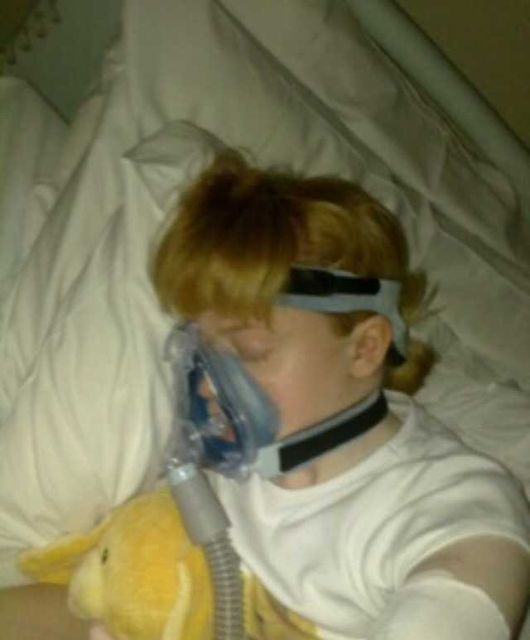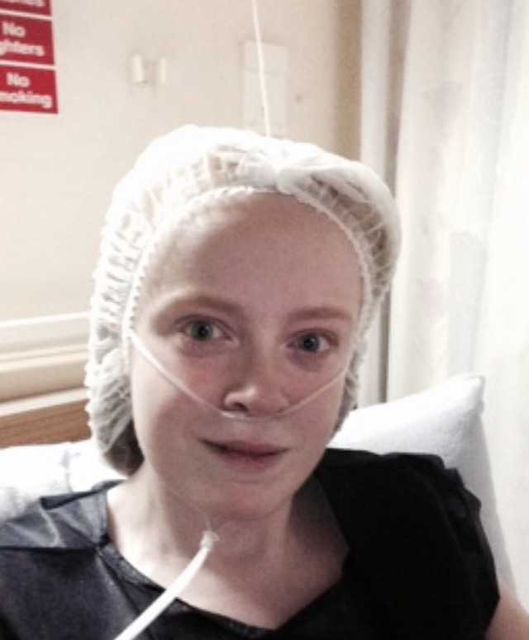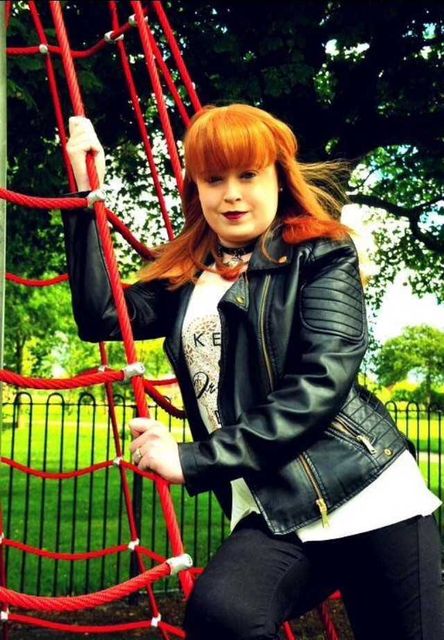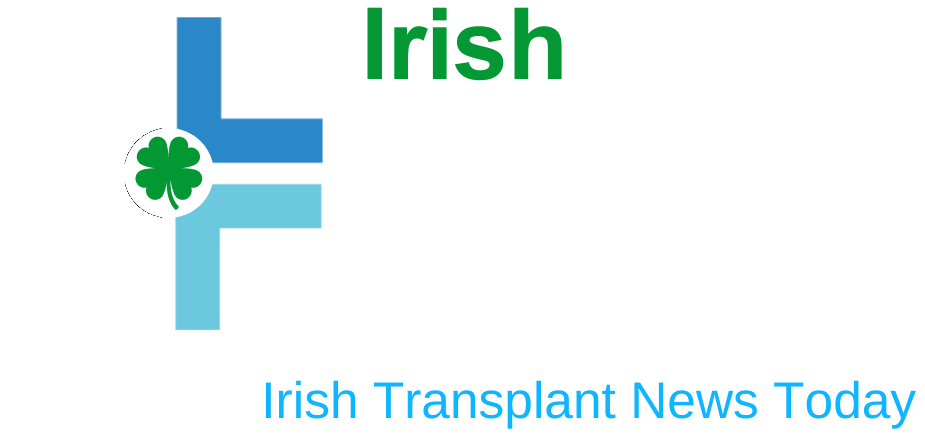Donna Griffin, 28, from Clonsau, Dublin, was born with cystic fibrosis (CF), a lifelong, inherited disease that mainly affects the lungs and digestive system and for which there is currently no cure.
Donna developed complications from CF when she was 17. Her lungs were affected, she contracted pneumonia, and then she became seriously ill. Instead of enjoying the final years of her teenage years like most of her peers, she spent most of the next three years in hospital.
“I lost half my body weight. I got infection after infection and it got to the point where I thought I'd be in hospital indefinitely for years. I kept thinking, 'I can't live like this',” she told Independent.ie.
The only treatment available to Donna was a lung transplant. Her older sister, Keva, who also has CF, had a double heart and lung transplant in the UK in 1998, aged 14. Keva, who published a book of poetry to raise funds for the life-saving operation, was the first person under 25 to undergo such a major and complex operation.
“I saw the difference the transplant had made in my sister's life and I knew it would affect me too. I didn't want to die. I wanted to live,” Donna said.
Donna's late sister, Queva Griffin
Sadly, Keva died from complications from an infection in 2003, several years after the operation, but her sister said, “She lived a truly full and happy life.”
Donna was eventually listed for a double lung transplant at the Freeman Hospital in Newcastle, where she had a better chance of receiving a transplant than in her home country. Her illness had left her extremely underweight, so she worked hard to gain the minimum weight (45kg) required for transplant candidates.
“I couldn't eat anything, I was just skin and bones, but I was looking forward to the operation so I tried my best to reach the weight I needed,” she said.
“I spent about three years shuttling between Ireland and the UK. I got four or five calls that I might be able to get a lung. I was taken in an ambulance to Dublin airport and then to Newcastle, but each time my hopes were dashed.”
Each time, tests showed her lungs were too bad for doctors to risk operating on her, and Donna was forced to return to her home in Ireland, much to her dismay.
Donna said she fell into a “deep depression” and began making funeral arrangements because she felt “hopeless”.
Donna Griffin hospitalized
All adult lung transplants were then repatriated from Newcastle to Ireland in 2014. In the same year Donna suffered a collapsed lung and was rushed to Beaumont Hospital.
“I was seriously ill and didn't think I would recover. It never even crossed my mind that a lung transplant would be an option. It may sound pessimistic, but I honestly didn't think I had any hope of survival.”
A week after falling ill, she received a call from Matter Hospital saying lungs might be available and was immediately admitted.
The doctor brought her in to examine her that afternoon and said he'd have an answer by midnight, but Donna had experienced so many setbacks in the past that she was certain that wasn't going to happen.
“My dad was with me. He's always been with me. He's my rock. He tried to stay positive but I wasn't very hopeful. Of course I wanted to be hopeful but I also didn't want to get my hopes up too much,” she said.
But at 10 p.m., doctors arrived in her room to deliver the good news: the operation would go ahead as planned, and they had found a suitable lung.
“I started crying, my father started crying too. We couldn't believe it. I was broken. I had had enough. I couldn't take the pain anymore. My lungs collapsed and I died.
Donna Griffin in hospital after lung transplant
“When they took me to the operating room I wanted to jump off the table. I was so scared, but I'll never forget the feeling I had when I woke up the next day.”
“It felt like a dream because I was finally able to breathe without pain. I was able to breathe fully and deeply, something I hadn't felt in a long time. I'll never forget that moment,” she said.
“It didn't matter if I had tubes sticking out of my body. All that mattered was that I got new lungs and everything was going to be fine.”
Since the successful surgery, Donna has been able to enjoy life to the fullest, thankfully has no major health issues, and says she is forever grateful to her donor for giving her life.
“I have great job security. I work for the Land Registry and they have supported me throughout this and I have never felt like my job was at risk. Life is good,” she said.
Ireland is due to introduce an opt-out system for organ donors in 2018. The system, introduced by Health Secretary Simon Harris, will operate on the basis of “presumed intent”.
Donna Griffin has welcomed the opt-out organ donation scheme introduced by Health Minister Simon Harris.
In practice, the new rules mean that people will have to sign a document stating that they do not want their organs to be harvested after death – if they don't, they are deemed to have consented – but ultimately next of kin will have the power to veto organ removal.
The 'opt-out' system is aimed at increasing the number of life-saving transplants in Ireland.
Donna welcomed the news but stressed that she understands that organ donation is a sensitive concept that can be difficult for grieving families to understand.
“I know it's hard. It's devastating to lose someone you love. There's nothing more painful than that,” she said.
“But what if the person on the operating table was someone you love? What would you say then? Could you say no? At the end of the day, you're giving someone a gift and it's a beautiful thing. It's truly a miracle.”





